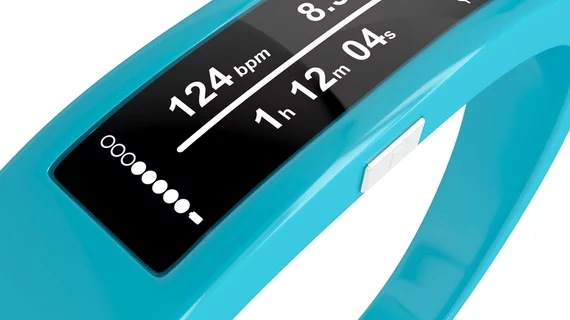AI wearables will only live up to the hype if patients like the tech
AI in healthcare and wearables are buzzy words in the sector, but not all patients are on board with injecting biometric monitoring devices (BMDs) into their daily lives. And that non-acceptance could prove problematic for the future of these devices and other AI-based tools, according to a recent study from French researchers with Université Paris Descartes.
“These technologies have generated a lot of ‘hype,’ but their real-world effectiveness will depend on patients’ uptake,” lead author of the paper Viet-Thi Tran, MD, PhD, of the METHODS Team at the Center for Research in Epidemiology and StatisticS (CRESS) at Université Paris Descartes INSERM, et al. wrote.
The researchers set out to understand patient perceptions of these devices and AI in healthcare by surveying more than 1,000 adult patients with chronic conditions in France. Their findings were recently published in npj Digital Medicine. Participants were recruited within the Community of Patients for Research (ComPaRE), a citizen science project based in France with an e-cohort of patients with chronic conditions. The project helps accelerate research on chronic conditions with enrollees answering regular patient-reported outcomes and experience measurements online.
Of the patients enrolled, 590, or 50%, reported using e-health or m-health tools for health. Of this group, 21% used smartphone apps, 5% used wellness wearable devices, 4% used medically prescribed wearable device, and 16% used health internet services.
Slightly less than half of enrollees saw AI and BMDs as a great opportunity in healthcare, while 11% considered it a danger. One-fifth considered the benefits of these devices and tool outweighed the dangers, and only 3% found that the negative aspects, such as the misuse of private data, risks of hacking, and the inadequate replacement of human intelligence, outweighed the positive aspects.
However, 35% of patients said they would refuse to integrate at least one existing or soon-to-be available intervention using BMDs and AI-based tools in their care––where these devices and tools can precisely have the most impact.
Researchers asked patients about their acceptance readiness of four available interventions with AI in healthcare and BMDs, including:
- Using AI and patients’ skin photographs to screen for skin cancer
- Wearable sensors for real-time monitoring and AI-based analysis and data collection to predict flares of chronic conditions
- Smart clothing and AI that guides physical therapy
- An AI chatbot to determine the severity of patient problems
In all presented situation, 20% were opposed to the use of BMDs and AI-based tools in their care, leaving 80% of participants ready for the use of some of this technology in their care. Still, few patients were ready for these tools without human control.
“Even among patients who were the most ready for the use of technology in their care, they would only see AI as a complement—and not as replacement—for human care for situations related to sensitive topics (cancer) or which involved lasting interventions (monitoring for chronic conditions),” Tran and colleagues wrote.
The study is among the few bits of research on how patients view these emerging tools, and the subject should be studied further, the researchers argued. Many of these solutions can ease burdens plaguing the healthcare systems in the U.S. and France, but the challenges of getting patients to engage and utilize these devices and tools could pose a barrier. In addition, the results could help design better products for the future that patients are likely to use and enjoy.
“These findings call for a novel reflection about how technology should be integrated in care processes to avoid a negative impact on patient care, the generation of unnecessary burdens or the intrusion in their lives,” the study concludes.

